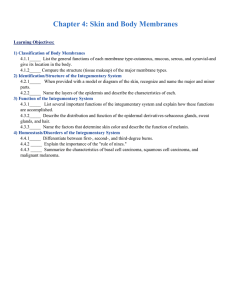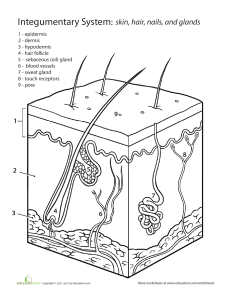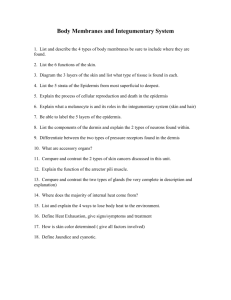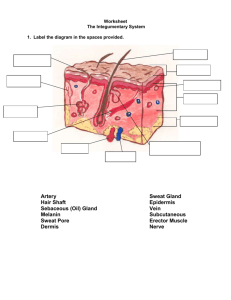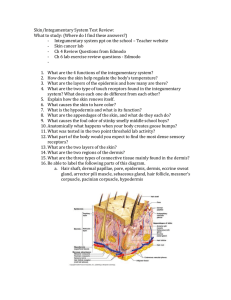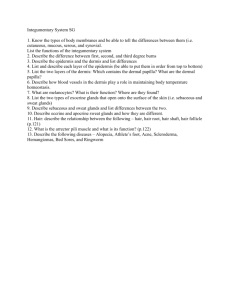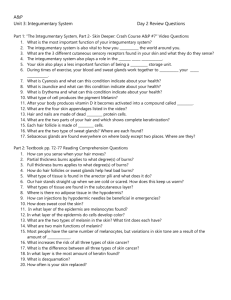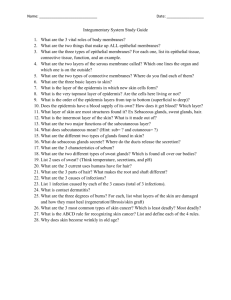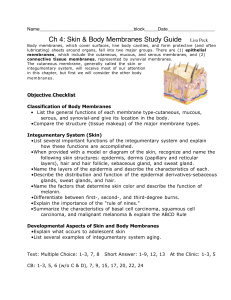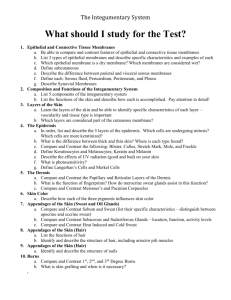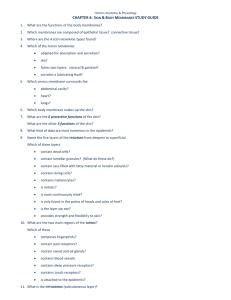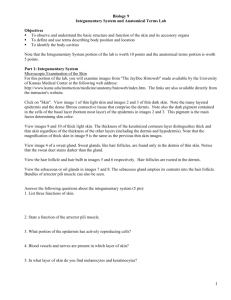Chapter 4: Skin and Body Membranes
advertisement
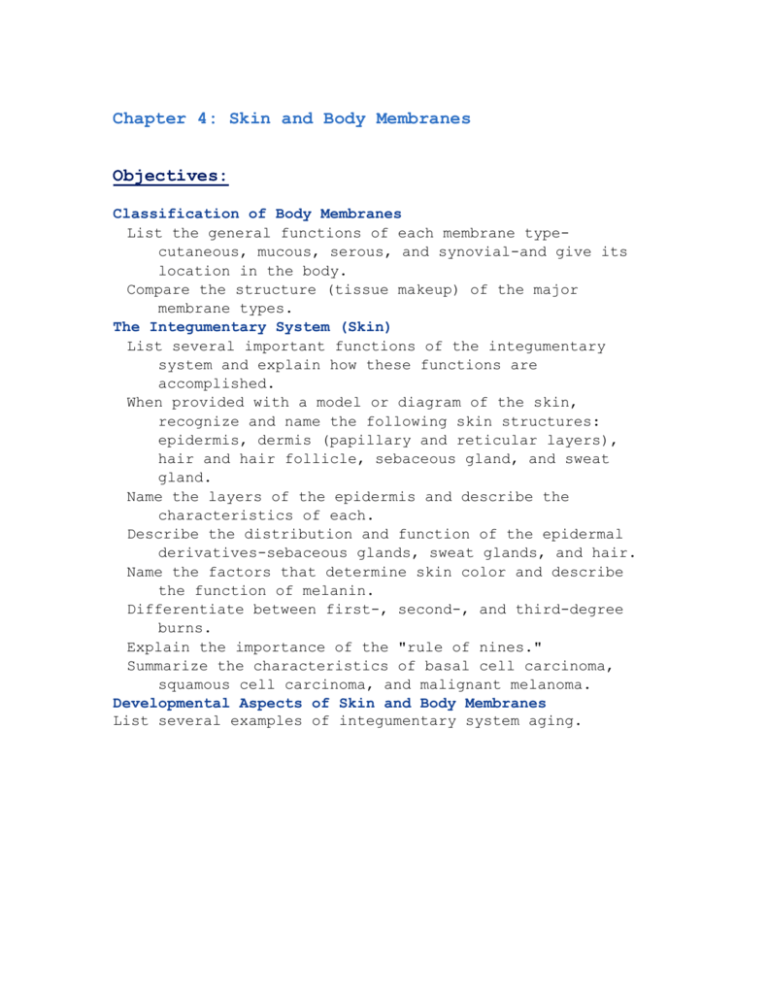
Chapter 4: Skin and Body Membranes Objectives: Classification of Body Membranes List the general functions of each membrane typecutaneous, mucous, serous, and synovial-and give its location in the body. Compare the structure (tissue makeup) of the major membrane types. The Integumentary System (Skin) List several important functions of the integumentary system and explain how these functions are accomplished. When provided with a model or diagram of the skin, recognize and name the following skin structures: epidermis, dermis (papillary and reticular layers), hair and hair follicle, sebaceous gland, and sweat gland. Name the layers of the epidermis and describe the characteristics of each. Describe the distribution and function of the epidermal derivatives-sebaceous glands, sweat glands, and hair. Name the factors that determine skin color and describe the function of melanin. Differentiate between first-, second-, and third-degree burns. Explain the importance of the "rule of nines." Summarize the characteristics of basal cell carcinoma, squamous cell carcinoma, and malignant melanoma. Developmental Aspects of Skin and Body Membranes List several examples of integumentary system aging.
